Personal Standards

A few weeks back, one of the big hunting conservation groups sent out a press release announcing a “strategic partnership” (whatever that is) to promote hunting ethics among the young hunters of today. Exactly how the “strategic partners” planned to do that I’m not sure, beyond vague mention of “outreach.” What I do know is that, most of the time, whenever I suggest writing about hunting ethics, editors roll their eyes and insist their readers don’t want to hear about it.
This is understandable. Long ago, I stopped going to church for much the same reason. No one I’ve ever met enjoys being preached at. Any editor who can recognize preaching and forestall it gets my vote, and should get yours as well.
However, for some years I’ve been exploring the whole question of hunting ethics (mostly in the privacy of my own home) simply because hunting is what I now have in place of church, and when you are that dedicated to anything, I believe you should learn as much about it as you can. Sort of like reading the Bible.
Before going any further let me just say, in my opinion, a hunter can learn all that needs to be known about the practical aspects of hunting ethics by reading Robert Ruark’s The Old Man and the Boy and José Ortega’s Meditations on Hunting. Toss in Ruark’s Horn of the Hunter, and you are pretty much covered. And, you’ll have had some great reading.
In my case, repeated readings of all of the above led me into an almost academic pursuit of some answers, and I found myself going all the way back to classical Greek. The word “ethics” does not roll easily off a tongue not schooled in philology, and if you have to go and look up the meaning of “philology,” don’t feel bad. So did I.
This story is from the November - December 2017 edition of Successful Hunter.
Start your 7-day Magzter GOLD free trial to access thousands of curated premium stories, and 8,500+ magazines and newspapers.
Already a subscriber ? Sign In
This story is from the November - December 2017 edition of Successful Hunter.
Start your 7-day Magzter GOLD free trial to access thousands of curated premium stories, and 8,500+ magazines and newspapers.
Already a subscriber? Sign In
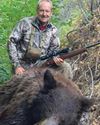
Black Bear On Sheep Mountain
Into a Dark Canyon
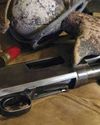
TELEGRAPH CREEK
The all-American pump gun (in this case, a 16-gauge Winchester Model 12) is one of the most versatile hunting arms ever made.
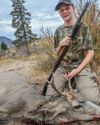
Boys & Muleys
Early Season Muzzleloader Fun
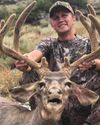
GOING PUBLIC
Bowhunter’s First Deer is a Dandy

Redemption at Windy Ridge
Stalking Sheep and Grizzly Bears

FIND YOUR BULL
Hunting Elk in Unfamiliar Territory

Cornhusker Mule Deer
Late Season Buck with a Muzzleloader
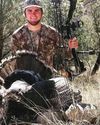
Archery Adventures
Dedication Leads to Wide Success

White Lake Blues
According to the map, there is an actual lake near the town of White Lake, South Dakota.
Too Many Elk
Second Opportunity Bull